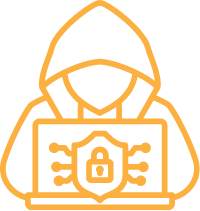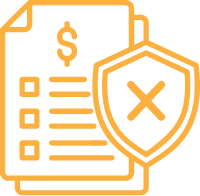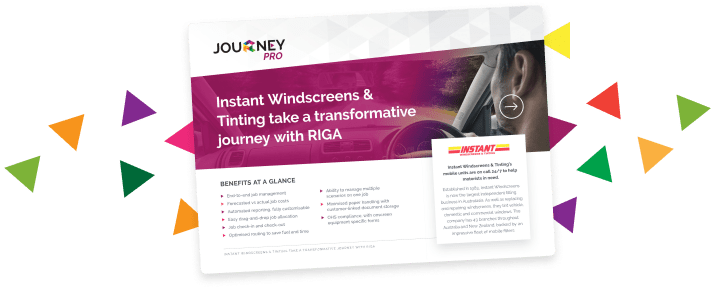It’s no secret that online privacy is a hot topic these days. With all of the ways that technology can be used to track our movements and monitor our behaviour, it’s natural to be concerned about our privacy online. However, it’s important to remember that online privacy is still possible.
There are steps you can take to protect your information and feel secure as you browse the internet. How much privacy does the constant use of technology afford us? With apps that have such strong algorithms that they serve us advertisements and content we “swear that I only thought of!” and security systems that monitor facial expressions, the term ‘online privacy’ seems almost like an oxymoron.
Earlier this month was the Australian Privacy Awareness Week, an annual event that highlights the gravity of protecting personal information and informs the public, companies and government agencies on how to navigate privacy. You might be reading this and be slightly confused, didn’t we just speak about password security? What on earth else do we need to do to protect our data?
At the end of the day, most people don’t want to spend even more time figuring out how they can better protect their data and privacy online. Last year, we spoke about data security and privacy from a business perspective. This year, we have a few tips for you, the individual. You’re just as important.
We live in a world where all of our moves are tracked and monitored. Like that crusty, delicious baguette you got from the market this morning, we leave a trail of breadcrumbs behind us as we use social media, online shopping, read the news or simply just check the weather. Our digital footprint is much more than just the photos we post on Instagram.
As more and more businesses increasingly rely on data to inform decisions, our personal information is becoming more and more lucrative and important to protect. In the following article, we will outline three ways that you can better protect your data online. If you are interested in understanding more about password security specifically, read our last blog here.
What are you willing to share with strangers?
How comfortable are you with putting a sign up in your window with a list of your full name, phone number, bank details, medical history and recent shopping purchases? Seems like a no-brainer, to say no! By making your social media accounts private and sharing specific content with only select people, you are half a step closer to privacy than others.
However, how do you actually know what these platforms are keeping track of? And what about other online traces, like your Google drive or business task managers? In recent years, social media privacy come to the forefront with the Cambridge Analytica story, where they used tracked data to manipulate voters and even engaged in “doxxing”.
As we become more reliant on online tools for both work and play, it’s important to consider how to protect your online privacy. Here are four ways:
- Use a Virtual Private Network (VPN)
Personal information is like your money… protect it! A VPN is a service that secures your internet connection and makes it more difficult for others to monitor your online presence. VPNs are increasingly becoming an essential tool for protecting data and the privacy of your personal and business’s online existence.
VPNs can help ensure your digital autonomy and independence by encrypting your connection and reducing the ability for your data to be stored and stolen online. VPNs reroute your information through an intermediary server in a remote location.
- Use a secure browser extension
For most businesses, purchasing a VPN for all of their staff may be a bit too overwhelming of a task. A secure browser extension is a fantastic way to get similar benefits to that of a VPN. Here in Australia, there are several browser extensions you can download that will secure your online activity. From password managers and adblockers to tracking monitors (for both individuals and cookies), real-time phishing scam blockers and plugins to help you decipher whether the site you’re on is safe and trusted.
Today, almost every website will collect data on you in one way or another. Businesses and individuals that use these extensions have higher control over what data is recorded and when. The primary goal of these extensions is to secure and protect from the constantly changing threats of the internet.
Another quick bonus tip? Use ‘incognito mode’ or switch your internet browser to private mode.
- Use two-factor authentication.
Two-factor authentication adds an extra layer of security to your online accounts. This means that if your passwords are leaked in a breach, another piece of information is required to log in to your account. From your mother’s maiden name to an automated code, 2FA is a great way to further fortify your data. Within your company, encourage your staff to use two-factor authentication across their emails, drives and social media accounts.
- Encrypt your data.
When your data is encrypted, it is turned into a code that can only be read by someone with the key to decrypt it. Unless you’re a super spy, these codes are incredibly complex and a strong defence against cyberattacks. This is an important step in online security, as it makes it much more difficult for cybercriminals to access your data if it is intercepted.
Many online services now offer ‘end-to-end encryption,’ which means that your data is encrypted from the moment you send it until the moment it is received by the intended recipient. You can even encrypt emails. Many providers offer password-protected options to send and receive emails, perfect for important documents and content.
We hope that these small tips encourage you to further protect your online activity. We all have a responsibility to ourselves and others to keep our data safe. If you want to unpack further data security strategies for your business, get in touch with our team today to chat about DISCOVER. Receive your first hour FREE with a no obligations chat about a technology strategy designed for you.
At Real Innovation Group we help businesses navigate their way through their technology landscape, including making sure your business is safe, secure and running efficiently. Our diverse group of IT experts have the qualifications, credentials and commitment to ensure that every client receives the outcomes they are looking for – and ones they didn’t realise were possible.
Our end-to-end product suite will provide you with a competitive advantage over the competition and take your experience to the next level. Want to learn more? Get in touch today and put some RIGA around it.
Want to know how Instant Windscreens and Tinting saved 2,000 hours per month?
Instant Windscreens and Tinting use JourneyPRO in their business today.
“JOURNEY is a ‘first-in-our-industry’ technology that improves our customer service offering, and claims back approximately 2,000 hours monthly in route scheduling for our branch management teams.”
Read more about how JourneyPRO has transformed Instant Windscreens’ business by downloading the case study here.












